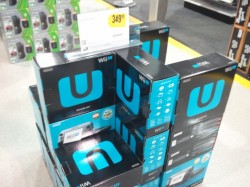Weekly News Roundup (27 April 2014)
Welcome to another WNR. I usually write this intro after I finish writing the rest of the article, and I’ve just realised all of this week’s stories are about giving people what they want (or not giving them what they want). Unsated demand creates services like Popcorn Time, and this week, Zona. It also forces people to use VPNs to access US online services like Hulu Plus. And Nintendo failed to take into account what people wanted when they designed the Wii U. Give people what they want. It’s not that hard!
![]()

Zona: Combining the best of Netflix, Hulu Plus, HBO Go, Spotify and many others into a killer piracy tool
Last month we had Popcorn Time. This month, it’s all about the Zona. If Popcorn Time as the Netflix of piracy, then think of Zona as Netflix combined with Hulu Plus, with a dash of HBO Go, stir in Spotify and you’re about half way there to what the new pirated streaming and download tool Zona is all about. There’s also live TV and sports streaming, millions of music tracks and streaming radio. And even porn! There’s also Android support, and DLNA streaming to enabled TVs.
With a super slick interface, and features that you can’t even get on Netflix, tools like Zona might just give Hollywood and the music industry something new to keep them awake at night. The greatest barrier to mass adoption of piracy has always been the technical hurdles, but if tools like Zona can make streaming and downloading easier than using iTunes, then it’s likely to reach a whole new group of users. It’s the MPAA and RIAA’s worst nightmare, and what was always going to happen due to the arms race they’ve been building against the pirates. Actually I take the last statement back, because the MPAA/RIAA’s worst nightmare would be a tool like Zona, but totally decentralized and anonymous. No one to sue? Scary!
No doubt the likes of the MPAA, RIAA and the law enforcement friends are ready to dial up the pressure. But the Russian based Zona might just find itself in a fortunate position, what with Russia unlikely to be very receptive of US demands at the moment, whether it’s the situation in the Ukraine, or copyright stuff.
——
Oh crap! How else am I gonna get my fix of the excellent Review show now that Hulu has started banning VPN access. They’ve not yet made a move against DNS geo-unblockers like the one I’m using, but it may simply be a matter of time.
Obviously Hulu are under pressure from rights holders (well, I mean they’re owned by rights holders too) to stop overseas viewers from accessing the delicious new release goodness, but it appears the network ban has also blocked US subscribers using VPNs for piracy purposes. Collateral damage, I guess.
I’m sure an eventual workaround will be invented to allow people like me a taste of what those lucky enough to be in the US take for granted, or even better, if they don’t ban DNS geo-unblockers at all.
It’s all about greed though. Greedy studios looking to extract as much money as possible (but unable to do so in their most competitive markets) overcharge people overseas or deny them speedy access to content. Then when people go out of their way to try and pay for more affordable content, studios aren’t happy about that either (because in their mind, if 100,000 people in Australia are paying Hulu $7.99 per month instead of $79.99 per month for overpriced local services, then that’s $7.2 million they’re “losing” every month). Except by denying them the cheaper services, people won’t just fork over the cash for the overpriced ones – they’re just flock to piracy (see Game of Thrones and Australia). It’s a lose lose for everyone, but it’s the direction that content holders are always taking.
So. Hulu VPN banning: I give it half a star (because I cannot give it zero stars).
![]()
Last week I asked if the Xbox One was in trouble. Not “Wii U” trouble I said, but trouble as in losing their dominance on the U.S. video games market. This week, I shall expand upon what exactly I meant by “Wii U trouble”, and it does not make good reading for Nintendo and fans of their consoles.
Just how much trouble is the Wii U in? To say that it’s not selling as well as the Wii is probably the understatement of the decade, but that was to be expected – the Wii was a freak of nature, a one off perfect storm of the motion and casual gaming crazes, taking advantage the then current situation where you had the overpriced PS3 (at that time), and the noisy and unreliable (at that time, too) Xbox 360. So if I told you that the Wii sold ten (10!) times as many units as the Wii U during the second March for both consoles (having both being released in November a year and a half prior), that’s probably not too surprising.
But if I were to tell you that the much maligned GameCube was more than twice as popular as the Wii U, again during its second March (and again, after a November release from the year before the last), it does provide some perspective as to just how much trouble the Wii U is in.
In their second Marches, the Wii sold 721,000 units and the GameCube managed 165,000. The Wii U has just managed 70,000.
It’s interesting to note that the Sega Dreamcast was cancelled at the end of its second March, having sold more units during its limited lifetime than the Wii U during a similar time frame. The Dreamcast’s cancellation had more to do with Sega’s financial woes, not something Nintendo has to worry about, so there’s no suggestion that Nintendo will cancel the Wii U. What might happen is that a new console will be brought out to try and get Nintendo out of this hole, and much sooner than expected. A console that could compete on price and performance with the Xbox One and PS4, perhaps, with Nintendo’s own special touches. Or Nintendo could keep on digging and hope for the best.
I know which I’d choose.
——
That’s it for this week. Hope you’ve enjoyed this WNR, see you in seven days!

